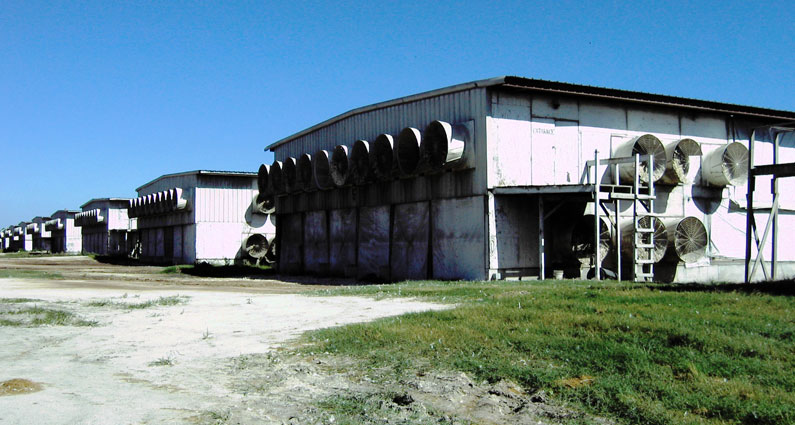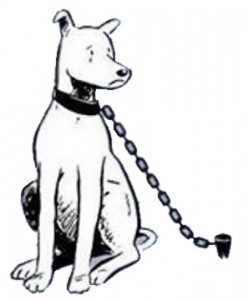October 28, 2015 | News & Information
The Cole Bros. Circus will perform in Port St. Lucie, November 5-8.
The City of Port St. Lucie and St. Lucie County require circuses to have a veterinarian on duty. Local veterinarian Dr. Enrique Borrego is once again acting as the circus’ veterinarian. Please contact Dr. Borrego and politely urge him to reconsider acting as the circus vet. Without a veterinarian willing to help the circus meet the permit requirements, the circus could not perform in St. Lucie County. Contact:
Enrique Borrego, DVM
Animal General Hospital
501 SW Port St. Lucie Blvd.
Port Saint Lucie, Florida
Phone: (772) 344-8835
Online comment form.
Post a comment on Facebook.
Ask Dr. Borrego if he approves of the treatment of elephants, tigers and other animals in traveling circuses? Urge him to visit ARFF’s website to learn more about the Cole Bros. Circus’ horrible history. Problems in recent years have included: failure to provide necessary veterinary care, cruel treatment of an elephant, inexperienced animal handlers, and violating the Endangered Species Act! Let Dr. Borrego know that you don’t support businesses that support cruel circuses.
*Please share with ARFF any responses that you receive.
October 8, 2015 | News & Information

The recently-announced Okeechobee Music & Arts Festival promises three days and nights of music, including more than 80 acts performing at five stages. It will also be a great opportunity for animal advocates to educate large crowds about the suffering of chickens in Florida’s egg industry.
The festival (“Florida’s biggest-ever camping festival”) will be held in March 2016 at a property that happens to be a mile down the road from one of Florida’s largest egg farms. The farm, owned by Cal-Maine Foods, the largest producer of shell eggs in the United States, confines hundreds of thousands of chickens in bare wire cages so small that they cannot even spread their wings. Click here for video from inside the farm.
For the most part, factory farms in Florida are in out-of-the-way locations. It’s not everyday that you have thousands of people driving by a factory farm. ARFF is exploring creative ways to spread a compassionate message to festivalgoers. Stay tuned!
September 29, 2015 | News & Information

During an August 19 visit, a U.S. Department of Agriculture inspector counted 114 sheep inside the Pearlman Biomedical Research Institute at Mount Sinai Medical Center in Miami Beach. (The two-story, nondescript building at the north end of the medical center complex can be seen from the Julia Tuttle Causeway.)
Sheep are used at Mount Sinai in studying asthma and other lung diseases. A 2012 study was typical of the research. A group of sheep were restrained in a “modified shopping cart,” with their heads immobilized. A tube was inserted into the nostril and a nebulizer used to deliver a toxin into the lungs.
Research using sheep has been going on at Mount Sinai Medical Center since at least 1982. In 2003 the Sun Sentinel published an article in which former employees told horrible stories of animal mistreatment, including sheep left unattended in shopping carts that sometimes fell over (leaving one sheep with broken legs), another sheep found dead with her neck caught in cage bars, and sheep killed by malfunctioning nebulizers.
Sheep are intelligent animals who experience fear, boredom and despair. We’re certain that sheep would rather be anywhere else than stuck inside a building in Miami Beach.
Photo: Farm Sanctuary
September 25, 2015 | News & Information
 Last week, the St. Lucie County Commission unanimously approved a strong anti-tethering ordinance, making it illegal to tie up a dog outdoors unless a guardian is outside along with the dog. Commissioners also adopted new standards to protect guard dogs.
Last week, the St. Lucie County Commission unanimously approved a strong anti-tethering ordinance, making it illegal to tie up a dog outdoors unless a guardian is outside along with the dog. Commissioners also adopted new standards to protect guard dogs.
Please thank the St. Lucie County Board of County Commissioners for their compassionate vote. Click here to send a note to commissioners.
Continuous chaining is bad for dogs. Dogs are very social animals who suffer from isolation. Chained dogs are much more likely to become aggressive. In addition, dogs confined on chains are at risk of becoming tangled and injured, are more likely to have skin problems and problems with parasites, and are often exposed to bad weather.
A growing number of cities and counties in Florida have enacted ordinances banning or restricting the cruel tethering/chaining of dogs, including Broward, Collier, Escambia, Hillsborough, Manatee, Marion, Miami-Dade, Okaloosa, Orange, Palm Beach, Pasco, Pinellas, Sarasota and Seminole Counties.
August 19, 2015 | News & Information

Dolphins and orcas in the wild spend most of their time below the surface of the water. But in captivity, they can often be found floating motionlessly at the surface of their shallow pools. As a result, captive dolphins and orcas are at risk of sunburn (sunburn is not only painful, but can lead to a dangerous infection).
On July 14, the U.S. Department of Agriculture conducted a routine inspection at Theater of the Sea, a marine park in Islamorada (Florida Keys). The USDA inspector found that the saltwater pools at the park have “minimal or no shade” for its dolphins. The USDA inspector noted that one dolphin, Stormy*, had sunscreen (zinc oxide) on his head to prevent sunburn. “In order for ‘Stormy’ to get away from the sun,” the inspector wrote, “he must seek shade by the small mangroves shallows and remain virtually motionless.” Theater of the Sea received a citation for failure to provide appropriate shelter/shade for its dolphins and sea lions.
*Stormy was captured from the Gulf of Mexico in 1986.
August 14, 2015 | News & Information
In the early to mid 1900s, the American alligator was decimated by hunters looking to make money (by selling the alligator’s skin). Alligator numbers recovered after the species received federal protection in 1967, and hunting began again in Florida in 1988.
Today, the alligator is the only animal in Florida that hunters kill in expectation of a financial reward. The skin and flesh of dead alligator’s is often sold following the hunt.
The 11-week hunt, which begins on August 15, is barbaric. Alligators are snagged with barbed hooks, pierced with arrows, stabbed with harpoons, and shot with a firearm called a “bangstick.” Only then is the animal pulled into a boat where he or she is finally killed by a knife or screwdriver that severs the spinal cord and is inserted into the brain cavity.
Visit ARFF’s website for more information about Florida’s alligator hunt: https://arff.org/alligators




